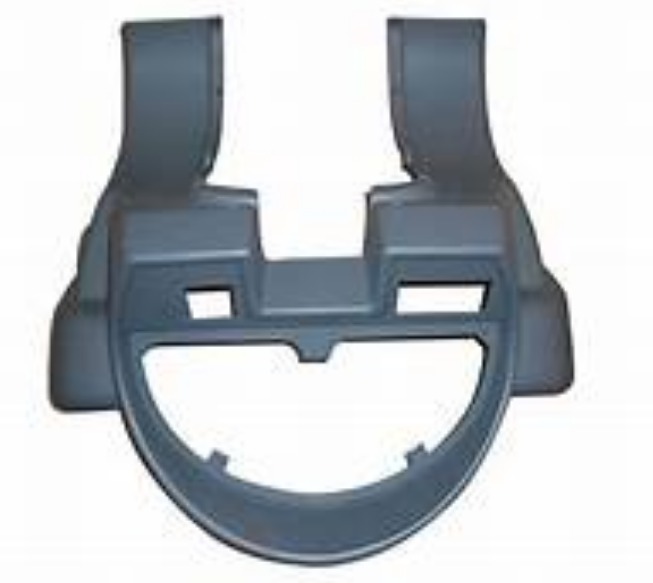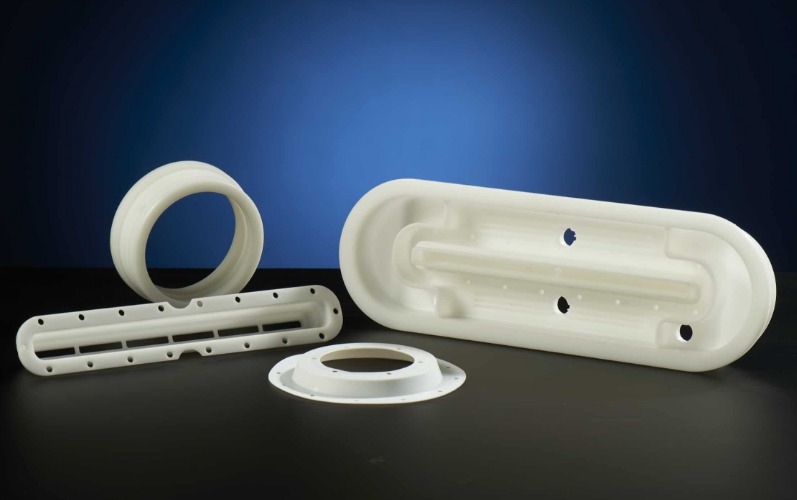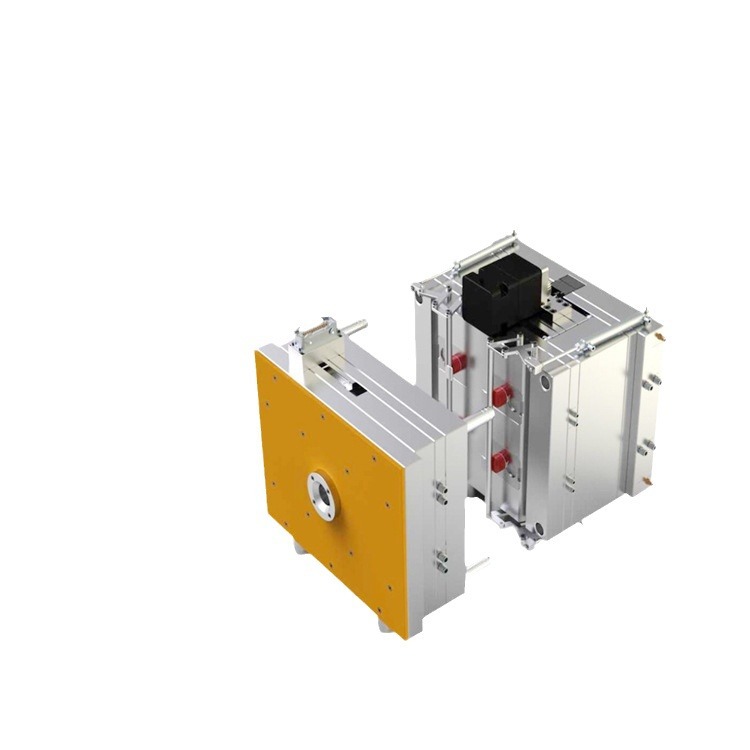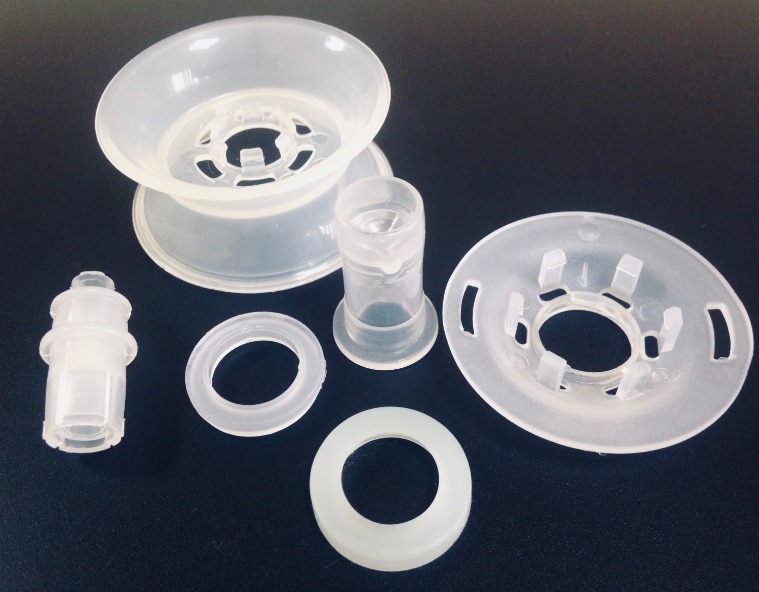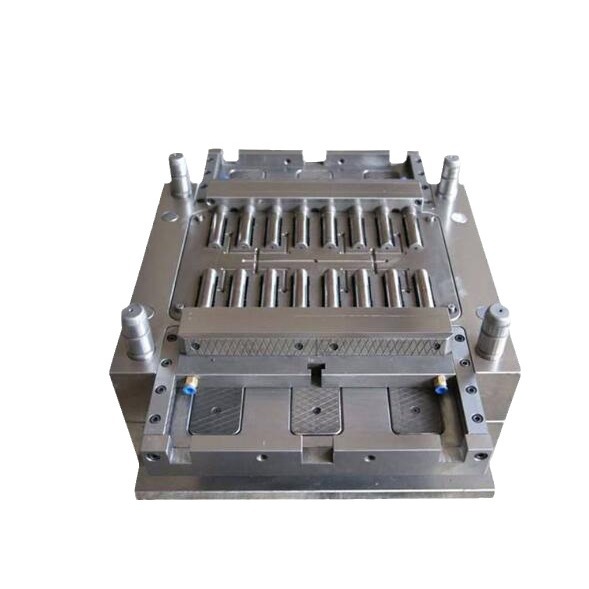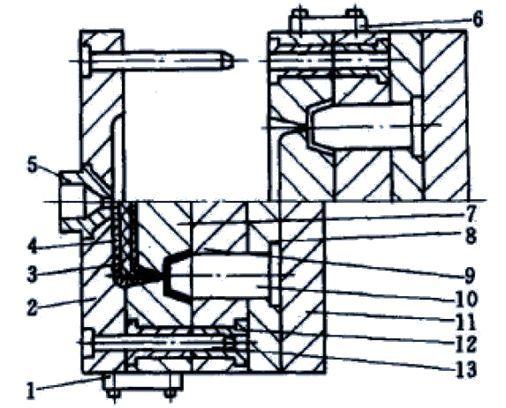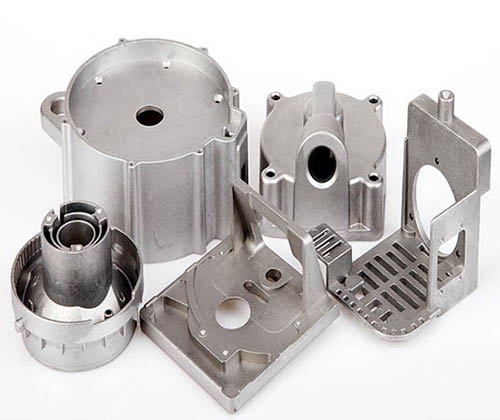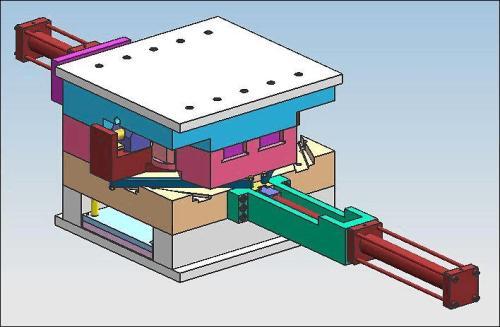Understanding the Significance of a Reliable Manufacturer
Selecting the right automotive injection mould manufacturer is far from a trivial decision; it's a cornerstone of success in the automotive industry. The quality of injection moulds directly impacts the quality of automotive components, which in turn affects the overall performance, safety, and market acceptance of vehicles. A sub - standard mould can lead to defective parts, causing costly recalls, damage to a car manufacturer's reputation, and potential safety hazards for consumers.
- Quality Influence: High - precision moulds ensure that automotive parts are produced with tight tolerances. For example, in the production of engine components, a deviation of even a fraction of a millimeter can disrupt the engine's performance, leading to reduced fuel efficiency, increased emissions, and a shorter lifespan. According to industry research, about 70% of the quality issues in automotive plastic parts can be traced back to problems with the injection moulds.
- Production Efficiency: An efficient automotive injection mould manufacturer can significantly boost production speed. Modern, well - maintained moulds with advanced cooling systems can reduce the cycle time of injection moulding. For instance, some state - of - the - art moulds can complete a cycle in less than 30 seconds, compared to older models that might take a minute or more. This increase in speed directly translates to higher production volumes and lower per - unit production costs.
- Cost - effectiveness in the Long Run: While high - quality injection moulds may have a higher upfront cost, they are more cost - effective over time. They have a longer lifespan, reducing the frequency of mould replacements. A study by a leading automotive research institute found that investing in premium moulds can save up to 30% in production costs over a five - year period due to fewer breakdowns, less scrap, and reduced maintenance.
Key Factors to Consider
1. Experience and Expertise
An automotive injection mould manufacturer with rich experience is like a seasoned navigator in a vast ocean. They have weathered various challenges in the industry and have in - depth knowledge in multiple aspects.
- Technical Proficiency: Manufacturers with long - standing experience are more likely to be proficient in advanced injection moulding techniques. For example, they can handle complex multi - component moulds with ease. A manufacturer with over 15 years of experience in automotive injection moulding can typically produce moulds with up to 5 - 7 components, compared to a new - comer who may struggle with more than 3 components. This proficiency allows them to meet the intricate design requirements of modern automotive parts, such as those with complex geometries for better aerodynamics.
- Problem - Solving Abilities: In the injection moulding process, issues like warping, flash, or short - shots can occur. Experienced manufacturers have a wealth of case - based knowledge to draw from. A study showed that experienced manufacturers can resolve 80% of common moulding problems within 24 hours, while less - experienced ones may take up to 72 hours. Their quick response and effective solutions can minimize production delays and costs.
2. Quality Assurance
(1) Advanced Equipment
Advanced equipment is the backbone of high - quality automotive injection mould production. High - precision machining centers, such as 5 - axis CNC machines, can achieve extremely tight tolerances.
- Precision Enhancement: These 5 - axis CNC machines can produce moulds with a dimensional accuracy of ±0.001mm, which is crucial for automotive components. For instance, in the production of fuel injector moulds, this high precision ensures that the fuel is injected accurately, optimizing engine performance and reducing emissions. Moreover, state - of - the - art EDM (Electrical Discharge Machining) equipment can create intricate details in the moulds, such as fine - tuned cooling channels. These well - designed cooling channels can reduce the cooling time of the moulded parts by up to 30%, improving production efficiency without sacrificing quality.
(2) Stringent Quality Control Processes
A reliable automotive injection mould manufacturer follows a comprehensive quality control system.
- Raw Material Inspection: Before starting production, the manufacturer carefully inspects all raw materials, such as the quality of the mould steel. They check for factors like hardness, chemical composition, and microstructure. For example, high - quality mould steel should have a uniform microstructure to ensure consistent performance during the mould - making process.
- In - Process Quality Checks: During the manufacturing process, regular inspections are carried out at different stages. This includes checking the machining accuracy of the mould components. For example, after rough machining, the dimensions of the components are measured to ensure they are within the allowable tolerance range.
- Final Product Testing: Once the mould is completed, it undergoes rigorous final testing. This may involve trial runs on injection - moulding machines to check for any defects in the moulded parts, such as surface finish, dimensional accuracy, and functionality. A manufacturer might conduct 50 - 100 trial runs to ensure the mould's stability and reliability.
3. Customization Capabilities
The automotive industry is highly diverse, with different car models having unique requirements for injection - moulded parts. A good automotive injection mould manufacturer must have strong customization capabilities.
- Meeting Diverse Design Requirements: For luxury cars, the interior moulded parts may require a high - gloss finish and extremely fine - detailed textures to enhance the overall aesthetic appeal. On the other hand, off - road vehicles may need parts with more robust and durable designs to withstand harsh environments. A capable manufacturer can work closely with automotive designers to translate these specific requirements into custom - made injection moulds. For example, they can use advanced CAD/CAM technology to create moulds that precisely match the 3D designs provided by car manufacturers, ensuring that every curve and detail is replicated accurately.
4. Cost - Effectiveness
(1) Initial Cost vs Long - term Value
When choosing an automotive injection mould manufacturer, it's a common pitfall to focus solely on the initial cost. While a lower - priced mould may seem attractive at first, it may lead to higher costs in the long run.
- Long - term Cost Analysis: A high - quality mould from a reputable manufacturer may have a higher upfront cost but offers a longer lifespan. For example, a premium mould might cost 20% more initially but can last 2 - 3 times longer than a cheaper alternative. Over a five - year production cycle, the total cost of ownership, including maintenance and replacement costs, for the high - quality mould could be 30% lower due to fewer breakdowns and replacements.
(2) Hidden Costs
There are several hidden costs associated with choosing the wrong automotive injection mould manufacturer.
- Maintenance Costs: Low - quality moulds often require more frequent maintenance. For example, they may need to be polished and repaired every few months, incurring additional labor and material costs. In contrast, well - made moulds from experienced manufacturers may only need maintenance once or twice a year.
- Replacement Costs: If a mould fails prematurely, the cost of replacing it, including the cost of the new mould, production downtime, and potential loss of orders, can be substantial. A study found that the average cost of replacing a failed automotive injection mould, including production disruptions, is around \(50,000 - \)100,000.
5. Production Capacity and Lead Time
The production capacity and lead time of an automotive injection mould manufacturer can significantly impact a car manufacturer's production schedule.
- Meeting Production Volumes: A large - scale automotive production line may require thousands of injection - moulded parts per day. A manufacturer with a high production capacity, equipped with multiple high - speed injection - moulding machines, can meet these large - volume demands. For example, a manufacturer with 50 injection - moulding machines can produce 50,000 - 100,000 parts per day, depending on the complexity of the parts.
- Timely Delivery: Short lead times are crucial in the automotive industry, especially when new car models are being launched or when there are urgent production needs. A reliable manufacturer can ensure timely delivery. For instance, a top - tier manufacturer can typically complete a standard automotive injection mould order within 4 - 6 weeks, while a less - efficient one may take 8 - 12 weeks.
6. Reputation and Customer Reviews
A manufacturer's reputation and customer reviews are like a mirror reflecting their quality and service.
- Word - of - Mouth and Online Reviews: Positive word - of - mouth from other automotive companies indicates that the manufacturer has a track record of delivering quality products and services. Online platforms and industry forums often have customer reviews. For example, a manufacturer with an average rating of 4.5 out of 5 stars on a popular industry review platform, based on 100+ reviews, is more likely to be reliable. These reviews can provide insights into various aspects, such as the quality of the moulds, the responsiveness of the customer service team, and the accuracy of delivery times.
Comparison Table: Making the Decision Easier
To further assist you in the decision - making process, here is a comparison table highlighting how different automotive injection mould manufacturers might fare in the key factors we've discussed:
| Key Factors | Manufacturer A | Manufacturer B | Manufacturer C |
| Experience and Expertise | 20 years in the industry, specializes in complex moulds for high - end cars | 10 years, mainly serves mid - range car manufacturers | 5 years, still building its reputation |
| Quality Assurance: Advanced Equipment | Equipped with multiple 5 - axis CNC machines, high - precision EDM | Has basic 3 - axis CNC machines, older EDM equipment | Limited to 3 - axis CNC, no EDM yet |
| Quality Assurance: Stringent Quality Control Processes | 3 - stage inspection: raw material, in - process, final product; 100+ trial runs | 2 - stage inspection; 50 trial runs | 1 - stage final inspection; 20 trial runs |
| Customization Capabilities | Can handle a wide range of custom designs, from luxury to off - road vehicles | Focuses on standard designs with some minor customization | Struggles with complex custom designs |
| Cost - Effectiveness: Initial Cost vs Long - term Value | Higher initial cost, but 2 - 3 times longer lifespan than average | Moderate cost, average lifespan | Low initial cost, frequent replacements needed |
| Cost - Effectiveness: Hidden Costs | Low maintenance, rare replacements | Moderate maintenance, occasional replacements | High maintenance, frequent replacements |
| Production Capacity and Lead Time | Can produce 80,000 - 100,000 parts per day, 4 - 6 weeks lead time | 30,000 - 50,000 parts per day, 6 - 8 weeks lead time | 10,000 - 20,000 parts per day, 8 - 12 weeks lead time |
| Reputation and Customer Reviews | 4.8 out of 5 stars on industry platforms, 200+ positive reviews | 4.2 out of 5 stars, 100+ reviews | 3.5 out of 5 stars, 50 reviews |
Yigu Technology's Perspective
As a non - standard plastic metal products custom supplier, Yigu Technology understands the criticality of choosing the right automotive injection mould manufacturer. In our experience, collaboration is key. A seamless partnership between the mould manufacturer and the product developer can lead to innovative solutions that meet both quality and cost - effectiveness requirements. We also emphasize the importance of a holistic approach. Consider not only the technical capabilities but also the flexibility and adaptability of the manufacturer. A good partner should be able to quickly respond to design changes and emerging industry demands, ensuring that the final automotive injection - moulded products are not only of high quality but also keep up with the ever - evolving automotive market trends.
